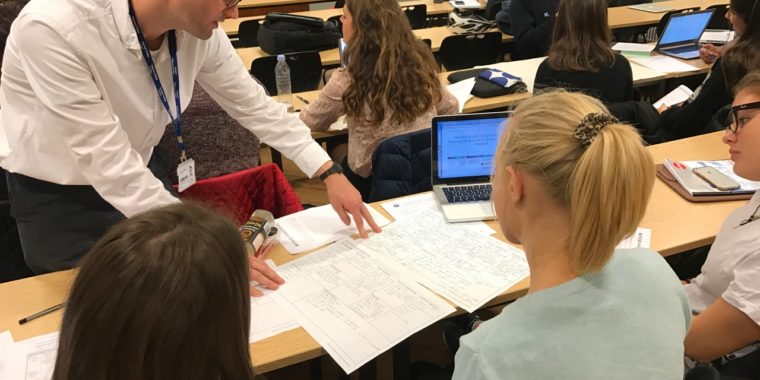
In general, assessment can be thought of in two different ways:
- assessment OF learning
- assessment FOR learning
Assessment OF learning
In most of your university experience, you will be encountering assessment OF learning. This is a type of assessment that judges whether you have learned the required material and skills to pass the module. The assessment comes at the end of a period of learning – often at the end of a module or at the end of the year.
The main purposes of assessment OF learning are to figure out whether you have reached a certain standard within your learning. Have you learned enough, complex facts or skills to achieve a particular qualification? Another function of assessment OF learning is to rank you in comparison to other students.
As a student, you will experience assessment OF learning as something that you have to tackle on your own (sometimes in teams), but largely without much help from a teacher. It is an assessment of what you know, what you can do and what you are capable of AFTER you have learned in your classes.
Assessment OF learning tends to take a diverse group of students, with different skills and abilities and then tests whether they have achieved a single common goal or standard.
Assessment FOR learning
How is assessment FOR learning different?
Assessment FOR learning happens while you are actually learning. Assessment FOR learning is not testing what you already know or can do, but is helping you to actually learn new things.
It is quite scary, because when you begin a piece of assessment FOR learning, you might not feel like you have the necessary skills or knowledge to complete the assessment to the best of your ability. Don’t worry – this is completely normal and to be expected.
Assessment FOR learning helps you to understand what skills and knowledge are necessary to complete the assignment, and helps you to gain those skills and knowledge along the way. In this way, you build an authentic relationship with the task that you are completing. You are also building your own skillset to tackle other similar pieces of work in the future.
In assessment FOR learning, your teacher is involved at every step of the process. They will want to hear your ideas, see how you are getting on and give you suggestions and tips. They will want to see plans, drafts and messy half-completed work.
They will not be judging you on the state of your work DURING the assignment. They want to see the messy, incomplete ideas and work so that they can help you complete the work to the absolute best of your ability.
Your teachers need you to help them to help you.
The more questions you ask, the more bits of partly completed work you show your teachers, the more help and feedback they can provide along the way.
In assessment FOR learning, you will get three types of feedback:
- Comments, questions, tips and ideas along the way – these are likely to be informal and arise out of discussion
- Plan and draft feedback aligned with the mark scheme – this will be written feedback in your feedback diary that is noted alongside the mark scheme. This will tell you how your work is shaping up, and where you need to focus more attention
- Final feedback – this will be written feedback aligned with the mark scheme that is provided once your work has been submitted and marked. This will celebrate everything you have achieved in your work, explain your mark and provide tips and ideas to take forward into future assignments
You will often also get peer feedback. Lots of support will be provided to help you give good peer feedback, and to know how to respond to the feedback.
Change Makers assessments
All Change Makers modules use assessment FOR learning. This makes the whole module experience very different to a module that is assessed in the more traditional assessment OF learning way.
You will not have lectures or delivery of a set curriculum that you must memorise or familiarise yourself with. Instead you will be directed to make lots of choices to curate your own reading, researching and developing knowledge.
You will not spend weeks and weeks in classes and then have an exam, essay or test at the end. Instead, you are likely to have several assignments spread throughout your module that all contribute to your final grade.
You will not be judged on a single attempt at completing a task or test. Instead you will have lots of opportunities to receive both formal and informal feedback, tips and advice so that you can continuously improve and develop your assignment before submitting it.
You will not develop knowledge and skills in one setting (class lecture or discussion) that you then will be tested on in another setting (on your own in an exam or essay). Instead, your learning – your development of skills and knowledge – are a part of the assessment and your submission will arise directly out of our work together.
You will not be asked to complete your assessment outside of class time. Instead, lots of class time will be dedicated to working on your assignments (although you may also want to work on them at home).
Check out your mark scheme that is provided with the assignment brief to see how your final mark will take account of both the work that you hand in, and the way in which you have worked together with your teacher to create that work.
Why are some assessments pass/fail and how does that work?
In some modules there are assessments that are marked as pass/fail. This is to relieve a little of the pressure of constant assessments and to focus your learning on where it is needed. Sometimes the learning about how to do something is more important than the learning of specific content – and the best way to learn how to do something is to have a go. In these circumstances, we value the attempt that you make rather than the outcome of that attempt.
However, it is important to understand that although you will receive a pass grade if you complete the assignment, that does not mean that you will automatically get 100% for the assignment. Usually there will be some elements that will determine your exact grade.
For example, in the My World module Be Happy, there are three mini-assessments that are marked as pass/fail. In order to complete each of the assessments, there are three elements that need to be present. As long as each element is present, you get the mark for that element. This means that most students will get 100%. But if a student attempts the task without completing any of those elements, they lose 1/9th of 100% for each missing element (three tasks with three essential elements in each task). And of course if a student does not complete the assignment at all, they receive a grade of 0%.
In Lessons From History there are some pass/fail quizzes, activities and even one cycle of work. For these, if the assignment is completed the student receives a grade of 70%. There are three bonus levels to the assignment that can score an additional 10% each – these are showing excellence in communication, excellence in collaboration and excellence in creativity. It is possible for a student or team to show complete the task and show excellence in all three areas, scoring 100%. But the majority of students will complete the task scoring 70% or 80% – perhaps showing excellence in one area.
The important thing to remember with pass/fail assignments is that the content of the work is not being graded – you are simply being graded for completion of the task.
Why Assessment FOR Learning might look scary, but isn’t something to worry about
So, just to summarise, there are several things about assessment FOR learning that make it look a bit scary on paper – but in reality are not things to be worried about.
- I don’t know how to complete the assignment – at the start of the assignment, no one will know exactly how to complete the assignment – this is normal! Your teacher is an expert in supporting you to build all the necessary knowledge and develop all the necessary skills along the way
- There’s a lot of assignments – it might look like the module will be a lot of work because there seem to be a lot of assignments – but remember that those assignments are completed in class time and are the main way that we learn together – so really they are the content of the module as well as the assessment
- It looks like a lot of work throughout the module – we do work hard together in the Change Makers modules, but each module has been very carefully designed to make sure that the workload is practically, logistically, emotionally and educationally appropriate at all times. Remember, that if you have completed your assignments in class, you don’t have any extra work to complete at home or at the end of the module.
- I’m not good enough, creative enough, knowledgeable enough to complete the assignment – our assignments are created to be accessible, challenging and enriching for all Imperial students. Some students will be better suited to different elements of different assignments, but the way the assignments are put together gives every student the opportunity to shine in their own way.
If you have any concerns about any of your assignments, please talk to your teacher. They will be able to reassure you, and guide you to create the best possible assignment that you can.
As teachers, we love helping our students – this is why we teach. So never hesitate to ask for help!
Last updated 3rd October 2023

2 thoughts on “Assessment for learning”
Comments are closed.